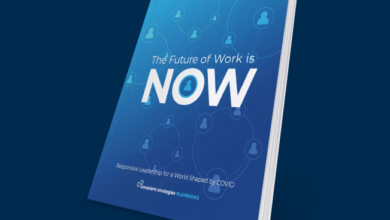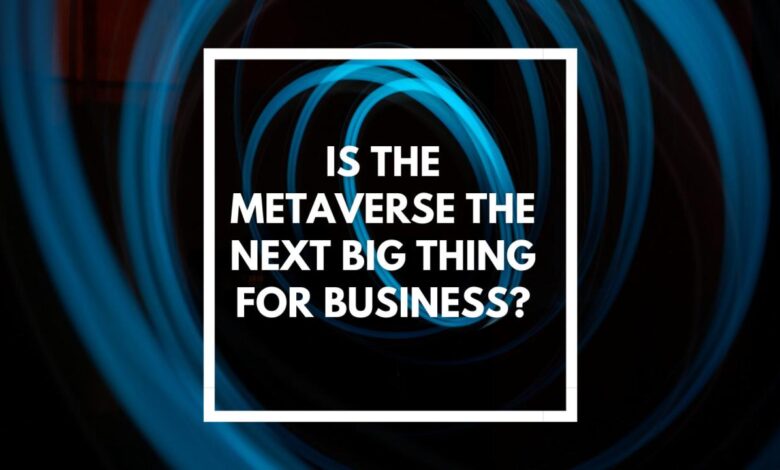
How The Metaverse Will Impact Higher Level Professionals
How the metaverse will impact higher level professionals is a question on everyone’s mind. As this immersive technology continues to evolve, it promises to transform the way we work, learn, and connect. The metaverse is not just a futuristic concept; it’s a rapidly developing reality with the potential to revolutionize industries and reshape career paths.
From virtual office spaces to immersive learning experiences, the metaverse offers a new frontier for higher-level professionals. This technology can empower them with new tools for collaboration, innovation, and growth. However, with this exciting potential comes a need to understand the challenges and ethical considerations that accompany this paradigm shift.
Impact on Work Environments
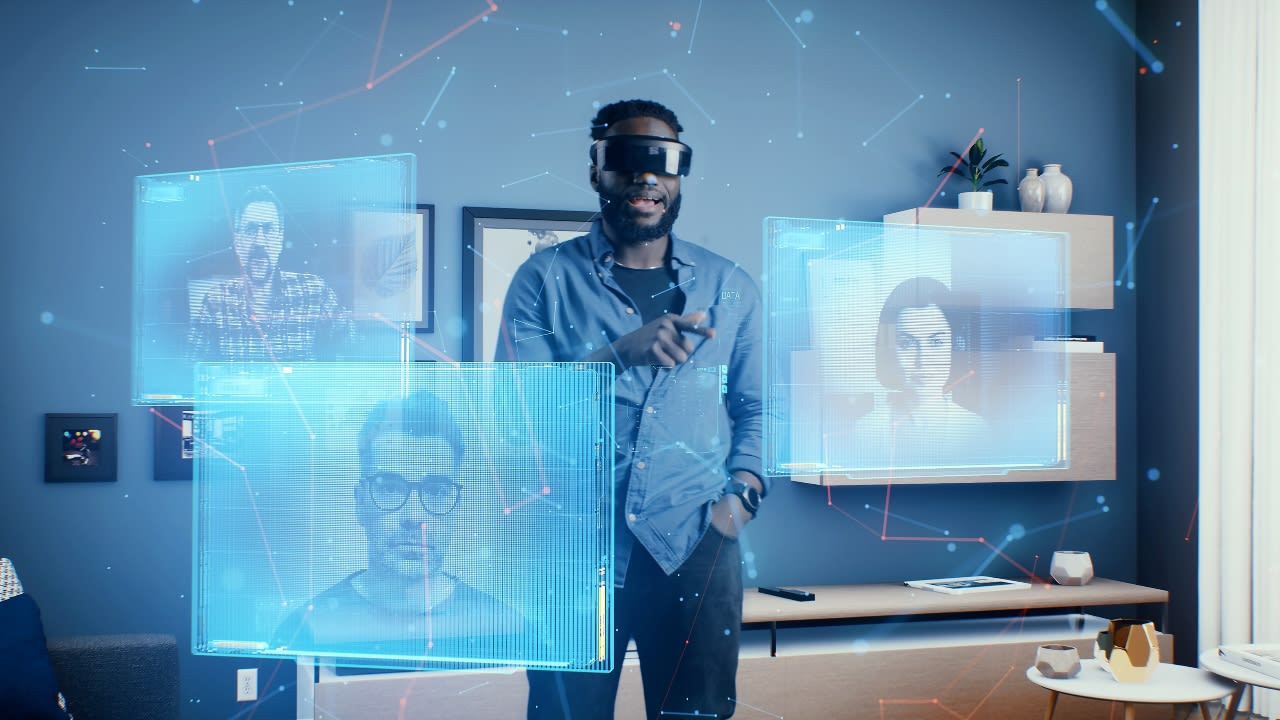
The metaverse, with its immersive and interactive virtual environments, has the potential to fundamentally reshape how we work, particularly for higher-level professionals. It could transform traditional office spaces, redefine remote work models, and introduce new ways of collaborating and interacting.
Virtual Collaboration Tools and Platforms
The metaverse could enable more engaging and effective collaboration among professionals, transcending geographical limitations. It can provide platforms for virtual meetings, workshops, and brainstorming sessions, fostering a sense of shared presence and facilitating real-time interaction. Examples of such tools include:
- Virtual Whiteboards:These platforms allow participants to brainstorm ideas, sketch diagrams, and annotate documents collaboratively, fostering a dynamic and interactive environment.
- Immersive Meeting Spaces:Metaverse platforms can create virtual conference rooms that simulate real-world settings, allowing professionals to interact in a more natural and engaging way.
- Virtual Training and Simulation:Professionals can participate in immersive training programs and simulations within the metaverse, enhancing their skills and knowledge in a safe and controlled environment.
Benefits of a Metaverse-Based Work Environment
The metaverse could offer several benefits for higher-level professionals, including:
- Enhanced Collaboration and Communication:The immersive nature of the metaverse can foster a sense of presence and shared understanding, facilitating more effective communication and collaboration among professionals.
- Increased Productivity and Efficiency:Virtual work environments can eliminate the need for physical commutes, allowing professionals to focus on their work and potentially increasing productivity.
- Improved Employee Engagement and Retention:By offering a more engaging and interactive work environment, the metaverse could enhance employee satisfaction and reduce attrition.
- Global Talent Acquisition:The metaverse can break down geographical barriers, enabling companies to recruit and retain top talent from around the world.
Challenges of a Metaverse-Based Work Environment
While the metaverse holds significant promise for the future of work, there are also challenges that need to be addressed:
- Technical Infrastructure:The metaverse requires robust and reliable infrastructure, including high-speed internet connections and powerful computing devices, to ensure a seamless and immersive experience for users.
- Cybersecurity:As with any online platform, security concerns need to be addressed to protect sensitive data and prevent unauthorized access.
- Digital Divide:Access to the metaverse may be limited for individuals without access to high-quality technology, potentially exacerbating existing digital inequalities.
- Privacy Concerns:The collection and use of user data in the metaverse raise concerns about privacy and data security, which need to be addressed through appropriate regulations and ethical guidelines.
Enhanced Learning and Development: How The Metaverse Will Impact Higher Level Professionals
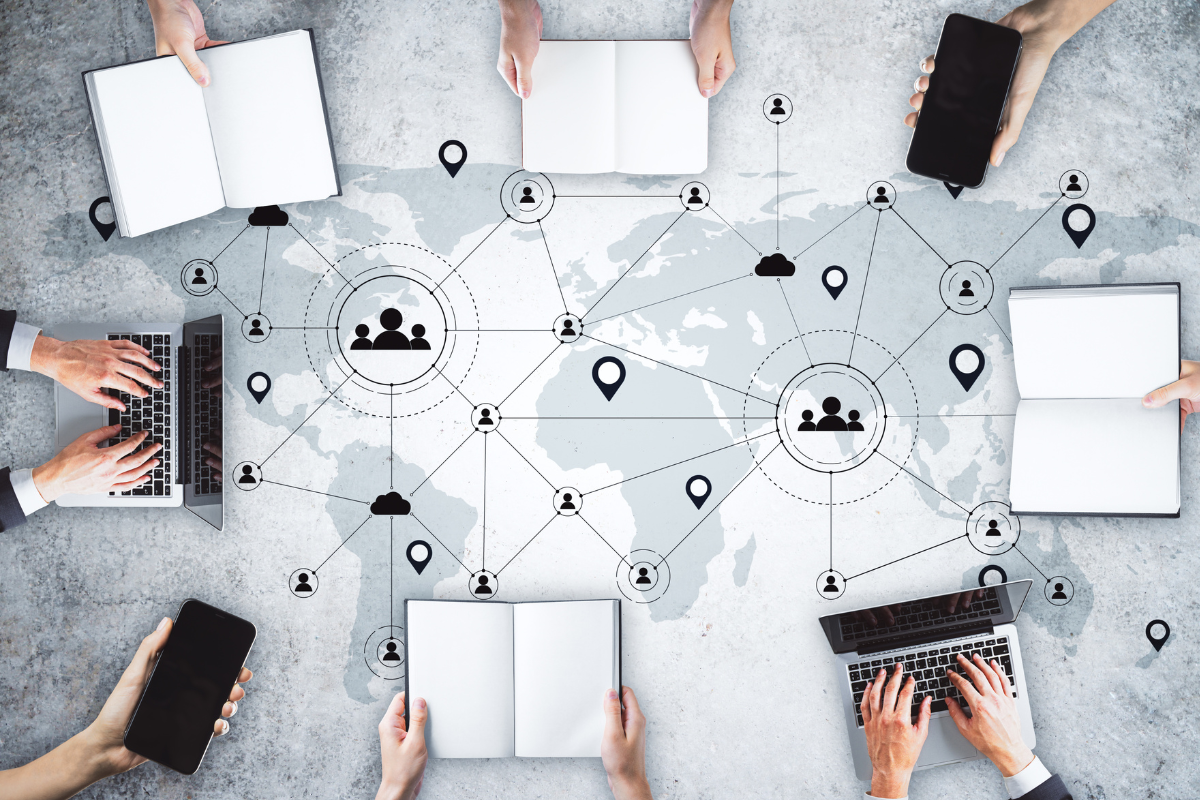
The metaverse presents a groundbreaking opportunity for higher-level professionals to enhance their learning and development journeys. By leveraging immersive technologies, the metaverse can transform traditional learning methods into engaging and interactive experiences that accelerate skill acquisition and knowledge retention.
Immersive Learning Experiences
Immersive learning experiences in the metaverse can significantly benefit higher-level professionals by providing realistic simulations and interactive environments that enhance skill development and knowledge acquisition.
- Virtual Reality (VR): VR applications can create highly realistic simulations of real-world scenarios, allowing professionals to practice complex tasks in a safe and controlled environment. For instance, surgeons can practice complex procedures in a virtual operating room, architects can walk through virtual building models, and financial analysts can experience simulated market fluctuations, all without the risks associated with real-world situations.
- Augmented Reality (AR): AR applications overlay digital information onto the real world, enhancing learning experiences by providing context-specific information and interactive elements. For example, engineers can use AR to visualize complex machinery, mechanics can access repair manuals and instructions superimposed on the equipment they are working on, and medical professionals can access patient records and medical imaging directly on the patient’s body.
Applications of VR and AR for Training and Development Programs
VR and AR technologies offer a wide range of applications for training and development programs, catering to the specific needs of higher-level professionals across various industries.
- Soft Skills Training: VR simulations can create realistic scenarios for developing essential soft skills, such as leadership, communication, and conflict resolution. For example, professionals can participate in virtual team-building exercises, practice negotiation skills in simulated business scenarios, or role-play difficult conversations with virtual counterparts.
- Technical Skills Training: VR and AR applications can provide hands-on training for technical skills, allowing professionals to learn by doing in a safe and controlled environment. For example, engineers can learn to operate complex machinery in a virtual environment, pilots can practice landing procedures in a VR flight simulator, and technicians can learn to troubleshoot equipment in an AR-enhanced workspace.
Advantages of the Metaverse for Mentoring and Knowledge Sharing
The metaverse offers a unique platform for mentoring and knowledge sharing among professionals, fostering a collaborative learning environment that transcends geographical boundaries.
- Virtual Mentorship Programs: The metaverse enables professionals to connect with mentors and peers from around the world, participating in virtual mentoring sessions, workshops, and networking events. This allows for personalized guidance and support, regardless of physical location.
- Knowledge Sharing and Collaboration: The metaverse provides a virtual space for professionals to share knowledge, collaborate on projects, and engage in discussions. Virtual workspaces, forums, and collaborative platforms can facilitate the exchange of ideas, best practices, and industry insights.
New Career Paths and Opportunities
The metaverse is a rapidly evolving technology that promises to revolutionize the way we work, learn, and interact with each other. As this digital world matures, it will create a plethora of new career paths and opportunities, particularly for higher-level professionals who possess the skills and expertise to navigate this emerging landscape.
Emerging Career Roles in the Metaverse, How the metaverse will impact higher level professionals
The metaverse will require professionals with specialized skills to design, build, and manage these virtual environments. Some of the emerging career roles include:
Metaverse Architects and Designers
Metaverse architects and designers will be responsible for creating and managing virtual spaces, including their layout, functionality, and aesthetics. They will need a strong understanding of user experience (UX) design, 3D modeling, and virtual reality (VR) technologies.
Metaverse Developers
Metaverse developers will be responsible for building and maintaining the software and applications that power these virtual worlds. They will need strong programming skills, experience with blockchain technology, and a deep understanding of the metaverse ecosystem.
Metaverse Educators
Metaverse educators will be responsible for designing and delivering educational programs within virtual environments. They will need expertise in online learning, instructional design, and the use of immersive technologies.
Metaverse Marketers
Metaverse marketers will be responsible for promoting products and services within virtual worlds. They will need a strong understanding of digital marketing, social media, and the metaverse consumer landscape.
The metaverse will revolutionize how higher level professionals collaborate and interact, offering immersive experiences that transcend physical limitations. While Elon Musk might be busy with his latest venture, forget twitter this musk is into toe curling yumminess , the metaverse will create new opportunities for leadership development, virtual networking, and innovative problem-solving, pushing the boundaries of traditional business models.
Metaverse Security Specialists
Metaverse security specialists will be responsible for protecting virtual environments from cyberattacks and other threats. They will need expertise in cybersecurity, data privacy, and blockchain security.
Skills and Qualifications for Metaverse Roles
| Role | Skills and Qualifications |
|---|---|
| Metaverse Architect/Designer | UX Design, 3D Modeling, VR Technologies, Project Management, Communication Skills |
| Metaverse Developer | Programming Languages (e.g., C++, Python, JavaScript), Blockchain Technology, API Integration, DevOps |
| Metaverse Educator | Online Learning, Instructional Design, Immersive Technologies, Communication Skills, Patience |
| Metaverse Marketer | Digital Marketing, Social Media, Content Creation, Analytics, Metaverse Consumer Behavior |
| Metaverse Security Specialist | Cybersecurity, Data Privacy, Blockchain Security, Network Security, Threat Intelligence |
Industries Most Impacted by the Metaverse
The metaverse will have a profound impact on various industries, creating new opportunities and transforming existing workflows. Some of the industries that are likely to be most affected include:
Education
The metaverse will revolutionize education by providing immersive and interactive learning experiences. Virtual classrooms and simulations will allow students to learn in a more engaging and effective way.
Healthcare
The metaverse will enable new healthcare applications, such as virtual consultations, remote surgery, and training for medical professionals.
Retail
The metaverse will offer new opportunities for online shopping and customer engagement. Virtual storefronts and immersive experiences will allow customers to interact with products in a more engaging way.
Entertainment
The metaverse will create new avenues for entertainment, such as virtual concerts, interactive games, and social experiences.
Real Estate
The metaverse will create new opportunities for virtual property ownership and development. Virtual land and buildings can be used for a variety of purposes, including residential, commercial, and entertainment.
Tourism
The metaverse will enable virtual travel experiences, allowing people to explore destinations without physically traveling.
While the metaverse holds immense potential for reshaping professional landscapes, especially for higher-level roles, it’s crucial to remember that it’s not immune to the broader economic climate. As highlighted in this article, amid global chaos the tech industry takes a rare tumble , even the most innovative technologies face headwinds.
The metaverse’s impact on higher-level professionals will likely be nuanced, shaped by factors like economic stability and investor confidence.
Manufacturing
The metaverse will enable remote collaboration and training in manufacturing environments. Virtual factories and simulations can be used to optimize processes and reduce costs.
Finance
The metaverse will create new opportunities for financial services, such as decentralized finance (DeFi) and virtual asset trading.
Networking and Collaboration
The metaverse has the potential to transform the way professionals connect and collaborate, opening up new avenues for networking and knowledge sharing. Imagine a world where professionals from diverse industries can interact in immersive virtual spaces, fostering collaboration and innovation like never before.
Virtual Events and Conferences
Virtual events and conferences within the metaverse offer a distinct advantage over traditional formats, enabling participants to experience a more engaging and interactive environment.
- Enhanced Engagement:Participants can interact with speakers, attend breakout sessions, and network with peers in a virtual environment that simulates a real-world conference experience.
- Accessibility and Inclusivity:The metaverse removes geographical barriers, allowing professionals from all over the world to participate in events without the constraints of travel or time zones.
- Personalized Experiences:Attendees can customize their virtual avatars and navigate the conference space according to their preferences, enhancing the overall experience.
- Data Analytics:The metaverse provides valuable data insights into attendee engagement, allowing organizers to optimize future events and measure the impact of presentations and workshops.
Cross-Industry Collaboration
The metaverse can facilitate cross-industry collaboration by creating virtual spaces where professionals from different sectors can connect, share knowledge, and develop innovative solutions.
The metaverse is poised to revolutionize the way higher level professionals work, potentially creating new roles and demanding new skill sets. But as the tech industry grapples with a cooling market and investor anxieties, a sense of fear and loathing return to tech start ups , which could impact the development and adoption of metaverse technologies.
This uncertainty might slow down the pace of innovation, but it also presents an opportunity for strategic thinkers to carve out their niche in this evolving landscape.
Imagine a scenario where a group of engineers, designers, and marketing experts from different companies come together in a virtual space to brainstorm solutions for a complex design challenge. They can interact with virtual prototypes, share ideas, and collaborate in real-time, regardless of their physical location.
The metaverse can foster cross-industry collaboration by:
- Breaking Down Silos:Virtual spaces can connect professionals from different industries, enabling them to share ideas and perspectives, breaking down traditional silos.
- Facilitating Knowledge Sharing:The metaverse can serve as a platform for sharing industry best practices, case studies, and research findings across diverse sectors.
- Developing Innovative Solutions:Cross-industry collaboration in the metaverse can lead to the development of novel solutions that address complex challenges by leveraging diverse perspectives and expertise.
Ethical Considerations and Challenges
The metaverse, with its immersive and interactive nature, presents a new frontier for higher-level professionals. However, this exciting new landscape also brings with it a host of ethical considerations and challenges that must be carefully addressed to ensure responsible and equitable development and utilization.
Data Privacy and Security
Data privacy and security are paramount concerns within the metaverse, particularly for higher-level professionals who often handle sensitive information. The immersive nature of the metaverse means users are constantly generating data about their activities, interactions, and even their physical movements.
This data can be collected and analyzed by platform providers, potentially leading to privacy violations and misuse.The following are potential ethical concerns related to data privacy and security in the metaverse:
- Data Collection and Usage:Metaverse platforms collect vast amounts of data on user behavior, including their interactions, movements, and even their emotional responses. This data can be used for targeted advertising, personalized experiences, and even profiling, raising concerns about privacy and potential misuse.
- Data Security and Breaches:The metaverse is susceptible to security breaches, which could expose sensitive user data to unauthorized access. This includes financial information, personal details, and even intellectual property, potentially leading to identity theft, financial losses, and reputational damage.
- Data Ownership and Control:Questions remain about who owns and controls the data generated within the metaverse. Users may not be aware of how their data is being collected, stored, and used, leading to concerns about transparency and control over their own information.
Accessibility and Inclusivity
Ensuring equitable access to metaverse opportunities is crucial for higher-level professionals. However, various factors can limit accessibility, including:
- Technical Barriers:Access to the metaverse requires specific hardware and software, which can be expensive and inaccessible to some individuals. This creates a digital divide, potentially excluding professionals from marginalized communities or those with limited resources.
- Disability Considerations:The metaverse needs to be designed inclusively to accommodate users with disabilities. This includes features like accessibility settings, alternative input methods, and support for assistive technologies.
- Cultural and Linguistic Diversity:The metaverse should be designed to be culturally and linguistically sensitive to avoid alienating or excluding professionals from diverse backgrounds.
Final Thoughts
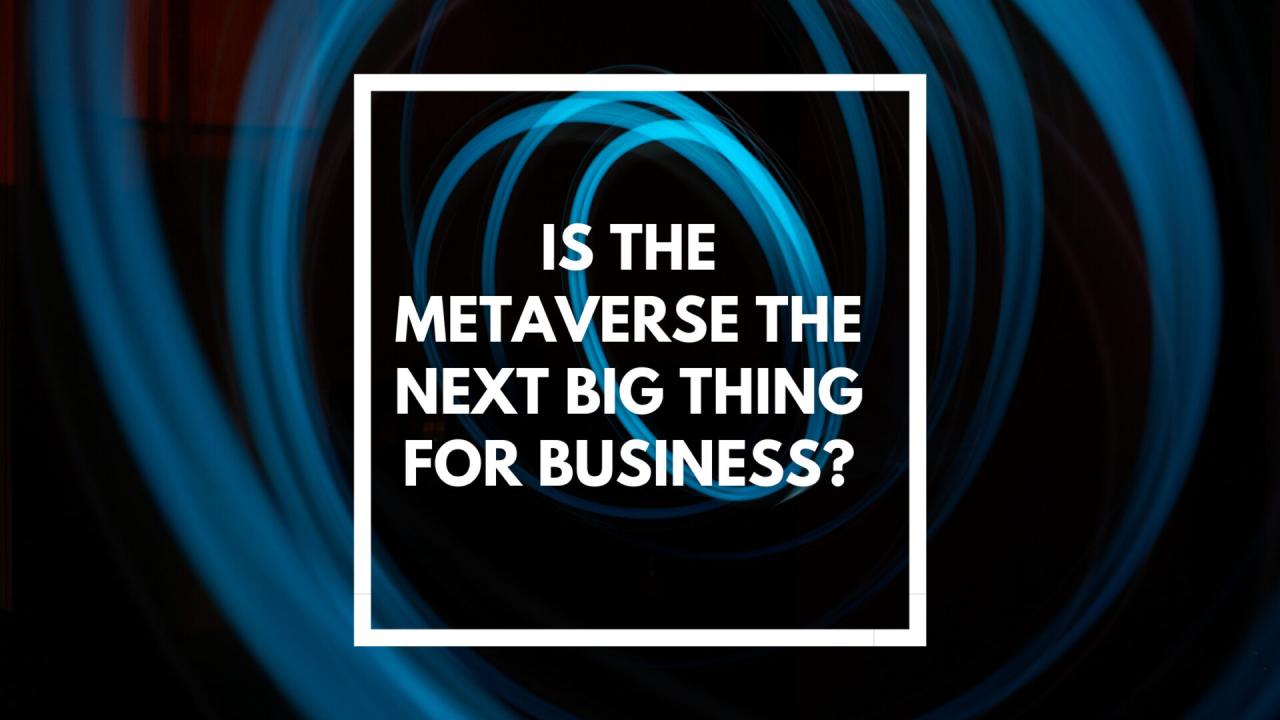
The metaverse is not just a technological advancement; it’s a cultural and economic force that will undoubtedly reshape the professional landscape. By understanding the opportunities and challenges presented by this emerging technology, higher-level professionals can navigate the future of work with confidence and seize the potential to create a more collaborative, innovative, and equitable world.





